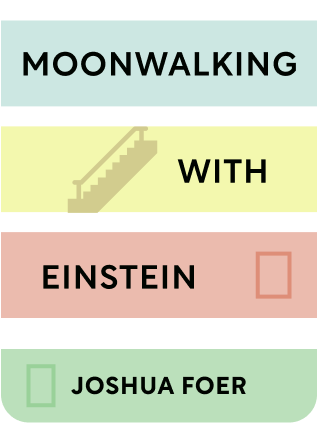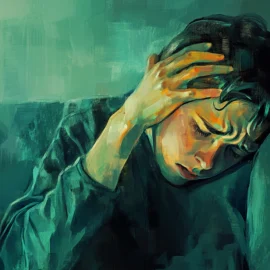

This article is an excerpt from the Shortform summary of "Moonwalking With Einstein" by Joshua Foer. Shortform has the world's best summaries of books you should be reading.
Like this article? Sign up for a free trial here .
Is there a reason that we forget some things, and not others? Is there a way to be less forgetful? What’s the science of forgetting?
The science of forgetting is not an area with unanimous agreement among scientists. However, we do know that memories fade, some faster than others, and it’s impossible to remember everything we encounter. And by learning why we forget, it’s possible to learn how to have a better memory.
Keep reading to find out how the science of forgetting works.
The Science of Forgetting
Now that we’ve explored the facets of memory, it’s time to look at its opposite—forgetfulness. Do our brains ever actually forget things, or do memories simply become inaccessible after a certain amount of time? Have our brains permanently and perfectly recorded everything that’s ever happened to us, and we’ve only forgotten because we don’t have the right cue?
In the 1980s, most psychologists believed that we never forgot anything. There were a couple of studies that seemed to support this:
- From 1934 to 1954, neurosurgeon Wilder Penfield probed the brains of epileptic patients. He was trying to cure epilepsy, but what he discovered was that when he probed temporal lobes, the patients suddenly remembered things they’d forgotten in vivid detail.
- From 1978 to 1984, psychologist Willem Wagenaar kept a diary of memorable events that occurred each day. In 1984, he looked back at his records and searched his memory for the events. He had no memory of the oldest 20% of memories and asked people he’d been with during the time to cue him. Once cued, he was able to remember the event.
However, over the last 30 years, psychologists have changed their minds. Neuroscientists have discovered that at the cellular level, memories disappear over time. Most think that Penfield’s probing cued hallucinations rather than genuine memories.
Now that we’ve established that we do in fact forget, it’s time look in more detail at how that happens:
The Curve of Forgetting
How quickly do memories fade over time? This is an important questino in the science of forgetting. Psychologist Hermann Ebbinghaus did an experiment in which he memorized three-letter syllables and then tested himself on how many he could recall. He forgot more than half of them in the first hour after learning them. He forgot another 10% after a day and another 14% after a month. After a month, there was little additional forgetting.
Childhood Memories
As adults, most of us can’t remember anything that happened before we were three or four, even though everything we encounter is novel at that age and we’re learning faster than we ever will again. There are likely a few reasons for this:
- In the first few years of our lives, our brains are still developing. In particular, the neocortex (where we store memories) takes years to fully develop.
- Our web of associations is small because we haven’t experienced much yet and we don’t have much language. New perceptions don’t have much to stick to.
- We don’t start making permanent memories until we’re around age three or four.
- Most of our early learning is nondeclarative.
We change so much as we grow that sometimes it’s as if we’re two different people, but the thing that links the different versions of ourselves is memory.
What Can Amnesia Tell Us About the Science of Forgetting?
What can amnesia tell us about the science of forgetting? “Amnesia” refers to memory loss. Because memories are stored in a different part of the brain from where they’re created, there are two different types of amnesia:
- Anteretrograde amnesia is the inability to form new memories.
- Retrograde amnesia is the inability to remember old memories.
Example #1: HM had epileptic seizures and neurosurgeon William Scoville performed experimental surgery on him to relieve it. Scoville took out HM’s hippocampus and most of the medial temporal lobes. The surgery did help with the seizures, but it also affected HM’s memory. Since his hippocampus was gone, he lost the ability to create long-term memories.
Example #2: EP’s medial temporal lobes, including his hippocampus, were damaged by the virus herpes simplex. He has both anteretrograde and retrograde amnesia—he can’t form new memories and can’t remember anything that’s happened more recently than 1950. However, his amnesia has been steady for the last 15 years, not worsening or improving.
Our identities have to do with our memories, but most of our daily actions don’t come from declarative memories, they come from our unconscious memories. As a result, EP still has emotions and a personality. He can walk his usual path through the neighborhood without getting lost and even though every time he meets a neighbor it’s for the first time, he knows he should feel comfortable around them.
Unremembered Learning
However, even people who have amnesia can learn and “remember” some things, such as how to do a task. This is a fascinating subject in the science of forgetting.
Example #1: HM learned how to draw a star while looking at a mirror. Each time HM was asked to do this, he never remembered that he’d done it before, but over time, his drawing improved.
Example #2: Scientist Larry Squire gave EP 24 words to memorize, which he quickly forgot. Squire then showed EP each of the words paired with another word (similar to the two-alternative picture recognition exam). EP only recognized the word he’d seen before about half the time. However, in a test where words were flashed on a screen for 25 milliseconds and Squire asked EP to read them, EP was better at reading the words on his memorization list than the random words.
Ribot’s Law
Ribot’s Law is an important part of the science of forgetting. The law finds that in amnesiacs and Alzheimer’s patients, more recent memories fade faster than older ones (science doesn’t know why yet). This phenomenon suggests that as memories get older, they change. Whenever you think about something, you impress it more strongly on your memory web. This impressing also changes the memory.
Sometimes the memory changes so much that it no longer accurately records what actually happened. You usually remember older things in third person, as if you’re watching them from outside your body. You tend to remember newer things in first person.
This process isn’t well understood yet, but one well-supported hypothesis suggests that our memories move within our brains. They’re initially formed in the hippocampus, but they’re stored in the neocortex. As you revisit them, they become consolidated and permanent. In the case of amnesiacs such as EP who lose the parts of their brains responsible for making new memories but still have the parts responsible for storage, this brings up the question—are their memories actually gone, or just inaccessible? Scientists don’t know.
The science of forgetting shows the complex nature of our memories. Forgetting is a natural part of how our brains work, but we can also learn to make our memory stronger.

———End of Preview———
Like what you just read? Read the rest of the world's best summary of Joshua Foer's "Moonwalking With Einstein" at Shortform .
Here's what you'll find in our full Moonwalking With Einstein summary :
- The memory techniques that took the author from novice to US memory champion in one year
- The 6 key types of memory we use everyday
- Why memory isn't just genetic, and how you can improve your memory with the right techniques






